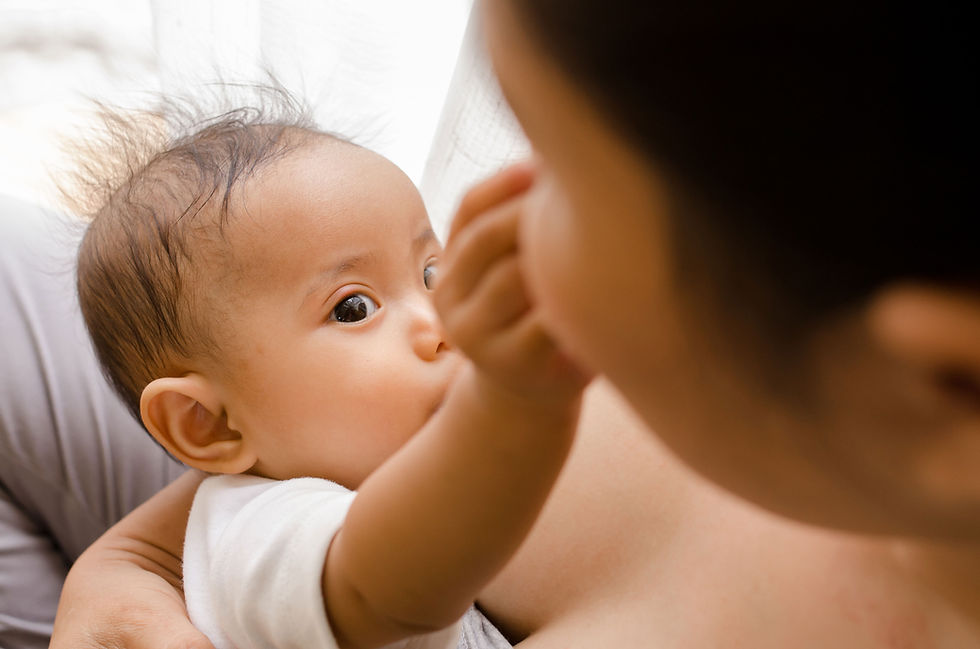Understanding & Healing the Mother Wound
- Jenna

- Sep 25, 2025
- 3 min read
What Is the Mother Wound?
The mother wound refers to the deep emotional and psychological imprints left by our earliest relationship with our mother or primary maternal figure. This wound isn't necessarily about having a "bad" mother, rather, it encompasses the complex relationship of unmet needs, intergenerational trauma, and the inevitable gaps between what we needed as children and what we received.
As a therapist, I've witnessed how this wound manifests across generations, often unconsciously passed down through family systems. The mother wound exists on a spectrum, from subtle emotional unavailability to severe neglect or abuse. It's the internalized voice that questions our worth, our lovability, and our right to take up space in the world.

How the Mother Wound Shows Up
In Daily Life...
Self-criticism and perfectionism
Difficulty setting boundaries or people-pleasing tendencies
Fear of abandonment coupled with fear of intimacy
Imposter syndrome and feeling "not enough"
Hypervigilance about others' emotions while disconnecting from your own
Difficulty trusting your intuition or inner knowing
In the Body...
Chronic tension in the chest, throat, or shoulders
Difficulty breathing deeply when stressed
Gut instincts that feel "offline"
Feeling simultaneously overwhelmed and numb
Physical symptoms that intensify around Mother's Day or family gatherings
Navigating Different Maternal Relationships

The Emotionally Absent Mother
When mothers are physically present but emotionally unavailable—perhaps due to their own unhealed trauma, depression, or overwhelming life circumstances—children learn to suppress their emotional needs. Through an Internal Family Systems (IFS) lens, we might develop a "manager" part that becomes hyper-responsible and a "exile" part that carries the pain of emotional neglect.
The Physically Absent Mother
Physical absence, whether through death, abandonment, or circumstances like incarceration, creates a different type of wound. The child may develop fantasies about the "perfect" mother they never had or carry deep shame about being "unwanted."
The Deceased Mother
Losing a mother creates complex grief that often includes anger, guilt, and unfinished business. The relationship becomes frozen in time, making it difficult to individuate and develop a separate sense of self.
The Living but Complicated Relationship
Many people struggle with mothers who are present but whose relationship feels fraught with criticism, control, or emotional volatility. These relationships often involve trauma bonds and complex loyalty conflicts.
Why It Emerges in Parenting and Motherhood

The transition to motherhood often activates the mother wound intensely.
Suddenly, we're faced with:
Our own capacity for unconditional love, which can highlight what we didn't receive
Triggers around our children's needs that mirror our own unmet childhood needs
Fear of repeating our mother's patterns or swinging to the opposite extreme
Grief for the childhood we didn't have, often surfacing as we parent our own children
Understanding and Healing the Mother Wound in Daily Life

Daily Practices:
Morning affirmations that counter internalized criticism
Journaling to explore different parts of yourself
Mindful self-compassion practices
Regular check-ins with your body and emotions
Relationship Work:
Practice setting boundaries with your mother (if she's living)
Learn to recognize and interrupt people-pleasing patterns
Make connections with individuals who feel safe
Parenting Healing:
Bring awareness to parenting triggers
Model emotional regulation for your children
Remember that "good enough" parenting is healing
The Ongoing Journey

Understanding and healing the mother wound is about reclaiming your authentic self. It's about recognizing that your mother's limitations don't define your worth, and that you can provide yourself the nurturing you may not have received.
This work is often nonlinear. You might feel healed in one area only to have the wound resurface during times of stress, illness, or major life transitions. You are human and healing happens in layers.
Remember that seeking therapy isn't about blaming your mother or playing the victim. Most mothers did the best they could with the tools they had, often while carrying their own unhealed wounds. The goal is to break the cycle for yourself and for your relationships.
If you're struggling with the mother wound, consider seeking support from a trauma-informed therapist who can help you navigate this complex healing journey.




Comments